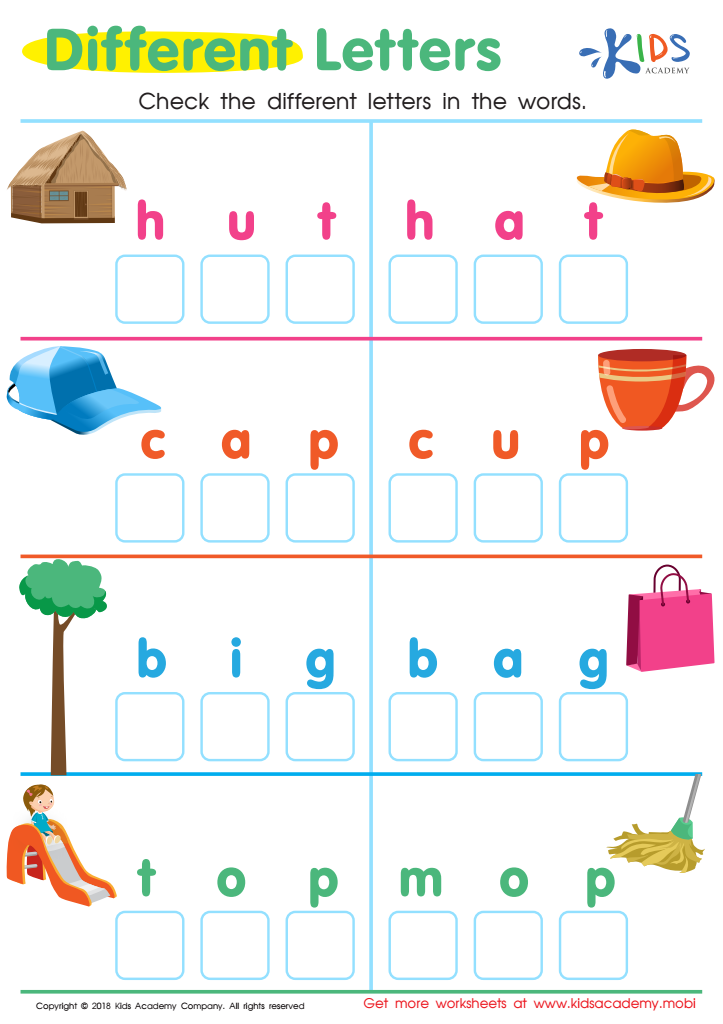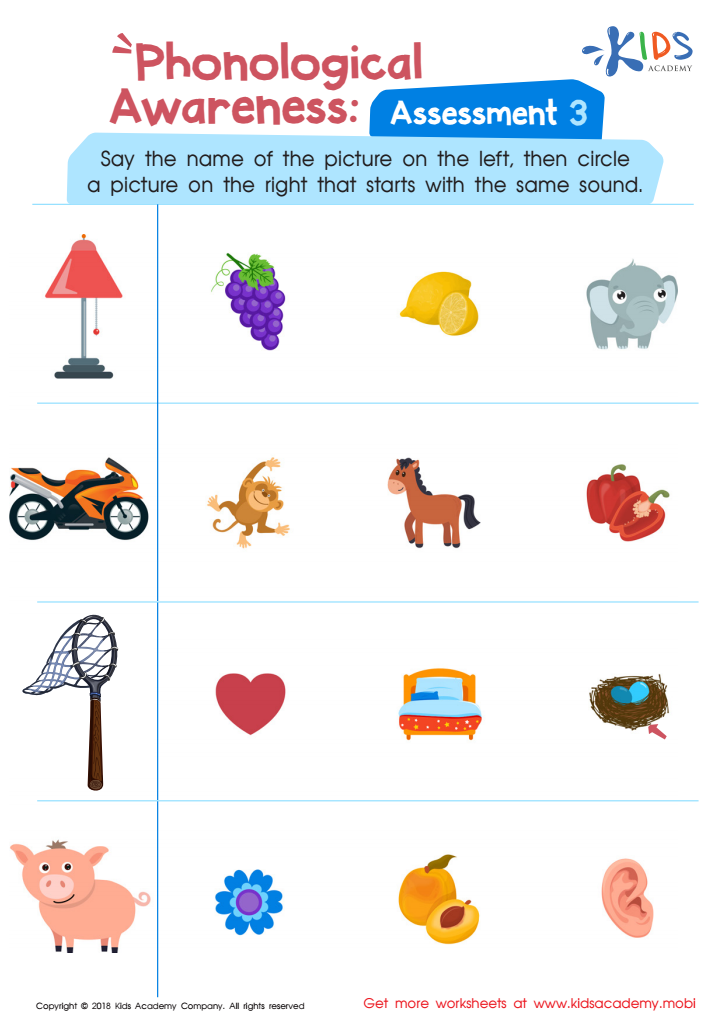Letter recognition Elementary Phonics Worksheets for Ages 3-8
5 filtered results
-
From - To
Discover our engaging Letter Recognition Worksheets designed for children ages 3-8! These elementary phonics resources help young learners identify and recognize letters through interactive and fun activities. Our worksheets feature vibrant illustrations and simple exercises that cultivate essential reading skills while making learning enjoyable. From tracing letters to matching uppercase and lowercase forms, students will gain confidence as they progress through each activity. Perfect for classroom use or at-home learning, these worksheets support early literacy development, enhance fine motor skills, and foster a love for reading. Start your child’s phonics journey with our thoughtfully crafted letter recognition worksheets today!


Long and Short U Worksheet


Different Letters Reading Worksheet


Phonological Awareness: Assessment 3 Worksheet


Long and Short E Worksheet


Phonological Awareness: Assessment 1 Worksheet
Letter recognition and elementary phonics are crucial for children aged 3-8, laying the foundation for literacy development. As children begin their educational journeys, recognizing letters is the first step in understanding written language. It empowers them to decode words, read independently, and develop comprehensive communication skills.
For parents and teachers, fostering letter recognition is vital for several reasons. Firstly, it significantly boosts a child’s confidence when they can identify letters and sounds. Engaging in playful activities that promote letter recognition can make learning enjoyable, ensuring children view education positively. Moreover, these skills help stimulate cognitive development, enhancing memory, attention, and processing abilities crucial for later academic success.
Additionally, early literacy skills are closely linked to long-term educational outcomes. Children proficient in letter recognition are better prepared for reading and writing in later grades, making them less likely to face literacy challenges. By prioritizing phonics and letter recognition in homes and classrooms, parents and educators provide their children with essential tools for effective communication and critical thinking. In essence, supporting letter recognition not only nurtures early learners but also sets the stage for lifelong literacy, fostering a love of reading and learning that can last through adulthood.
 Assign to My Students
Assign to My Students










